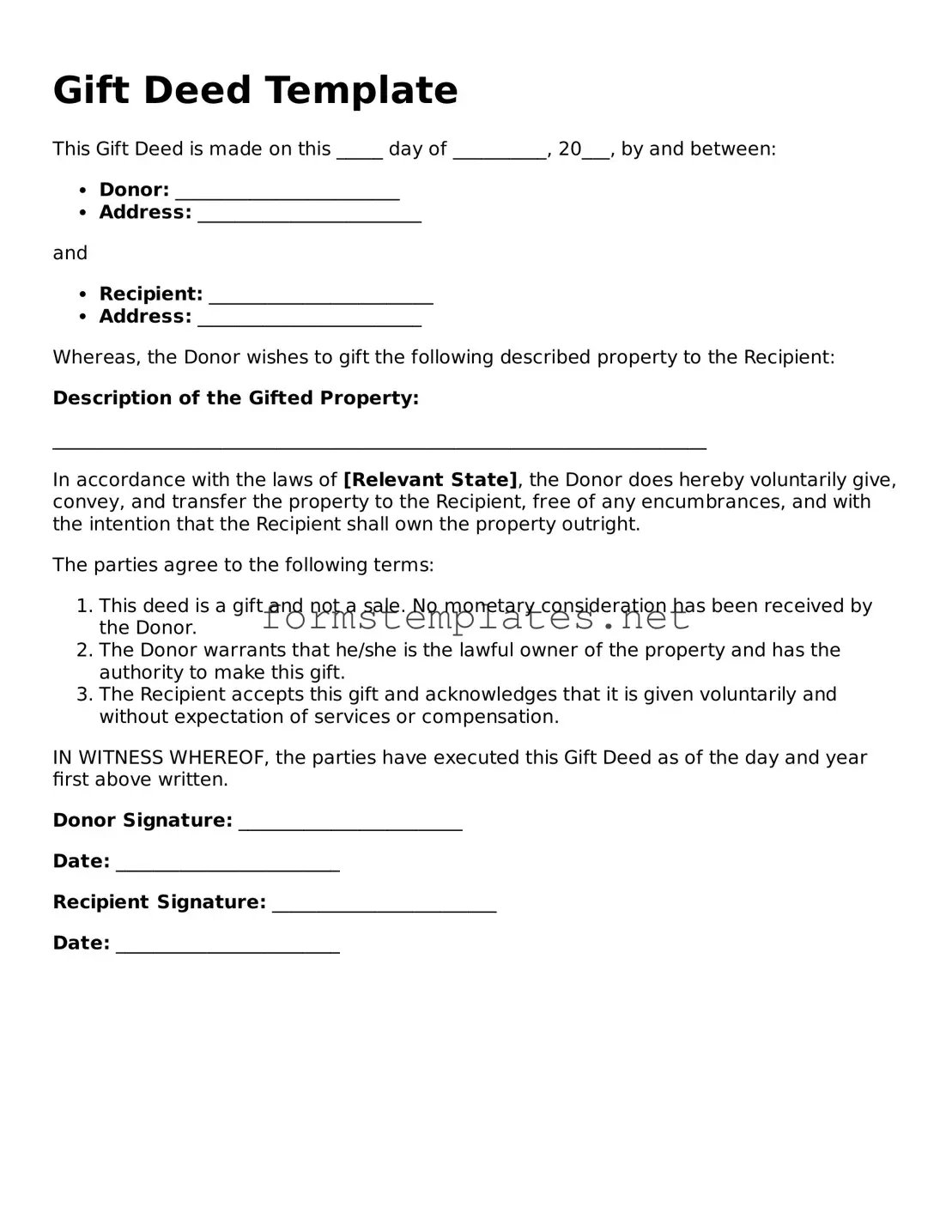Attorney-Verified Gift Deed Form
A Gift Deed is a legal document that facilitates the transfer of property or assets from one individual to another without any exchange of money. This form outlines the terms of the gift, ensuring that the transfer is clear and legally binding. Understanding the nuances of a Gift Deed can help both donors and recipients navigate the process smoothly.
Open Editor Now

Attorney-Verified Gift Deed Form
Open Editor Now

Open Editor Now
or
⇓ PDF Form
Your form still needs attention
Finalize Gift Deed online — simple edits, saving, and download.